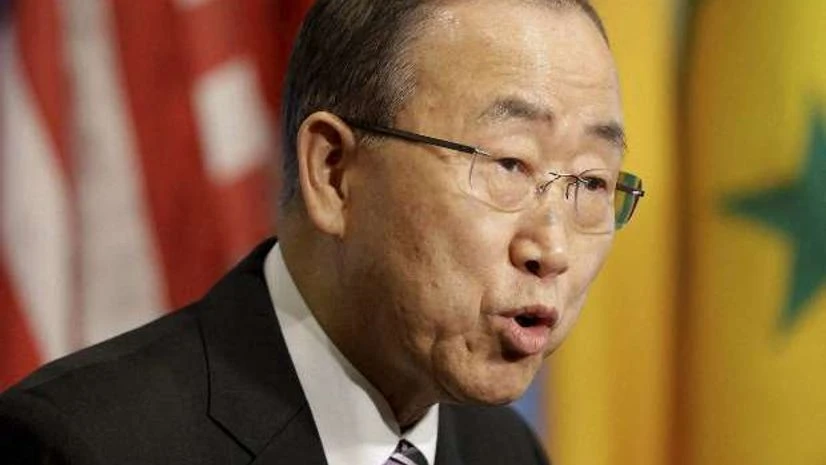Ban Ki-Moon was due to arrive in South Korea on Wednesday for a six-day visit that has fuelled speculation the UN chief is lining up a tilt at the presidency of his home country.
Ban's schedule involves a number of international forums, including the UN NGO conference in the southern city of Gyeongju.
While he is not expected to hold any formal talks with political officials during his trip, it is his political future that has been the main topic of media coverage in the run-up to his arrival.
The soft-spoken 71-year-old will step down from the post of UN Secretary General at the end of the year -- 12 months before South Korea's presidential election in December 2017.
The ruling conservative Saenuri party, which suffered a shock defeat in parliamentary polls in April, has made it clear it would welcome Ban as its candidate.
Also Read
Ban enjoys high popularity ratings in South Korea, which has taken substantial national pride from his position as head of the United Nations.
Speculation over his political ambitions has been making the rounds for years, but Ban has studiously declined to comment, saying only that he is focused on the remainder of his term as secretary general.
Saenuri party officials have been less circumspect.
"The UN Secretary General is the world's president, and Ban is so experienced and well-connected with all the world's leaders after serving in the top UN job for 10 years," Saenuri Party lawmaker Ahn Hong-Joon said in a radio interview.
"Now it's time for South Korea to put him to good use," Ahn said.
Not everyone is similarly enamoured with the prospect of a Ban presidency, with some critics suggesting his connections would throw up conflicts of interest.
Seoul Mayor Park Won-Soon, seen as a possible liberal candidate in 2017, said Ban should recuse himself from politics for several years after leaving the UN.
"A UN chief can access a slew of confidential information about many countries and I think one can unfairly take advantage of the information when serving a particular country," Park said.
A career diplomat, Ban never joined a South Korean political party, although he served as foreign minister under the late liberal president Roh Moo-Hyun from 2004 to 2006.

)
